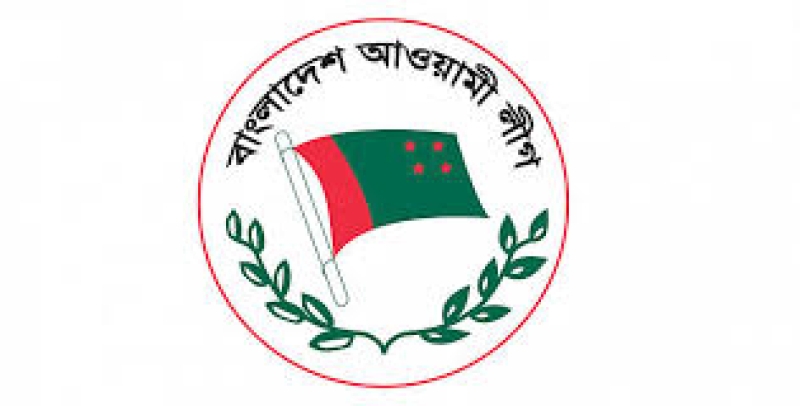- Puppet show enchants Children as Boi Mela comes alive on day 2 |
- DSCC Admin Salam’s drive to make South Dhaka a ‘clean city’ |
- 274 Taliban Dead, 55 Pakistan Troops Killed |
- Now 'open war' with Afghanistan after latest strikes |
- Dhaka's air quality fourth worst in world on Friday morning |
Banning of Awami League activities, a sharp turn in politics

Awami League flag
The Bangladesh Interim Government's decision to ban all activities of the Bangladesh Awami League, both online and offline, marks a pivotal and contentious shift in the country's political landscape. The government has justified the move by citing the party’s alleged involvement in fascist activities, human rights violations, crimes against humanity, corruption, and money laundering. Additionally, efforts are underway to amend the law to allow prosecution of political parties and associations for crimes, further strengthening the legal framework to ensure accountability.
An important argument put forward by individuals connected to the government is that this action is unlikely to face international repercussions. They highlight historical precedents, such as the prohibition of the Nazi Party in Germany and the Fascist Party in Italy, as well as the findings of the UN human rights body. The latter, in its inquiry into the mass killings of July and August, reported serious violations of human rights and crimes against humanity committed by the government in power at the time. These points are being used to bolster the justification for banning the Awami League, portraying it as a necessary measure for justice and stability.
The move has received mixed reactions from political circles. The pro-government National Citizens Party has been vocal in its support, arguing that the Awami League's actions during its rule from 2009 to 2024 warrant such a ban. Some political parties have endorsed the decision, while others have voiced concerns about its implications for democratic principles. One political leader has cautioned that banning a political party is not a viable solution and that systemic issues should be addressed through comprehensive legal and institutional reforms.
The decision has also elicited strong responses from the public, with reactions ranging from support to outright opposition. While some view it as a necessary step toward justice, others fear that it could set a precedent for political suppression.
As Bangladesh navigates this turbulent transition, the government’s ability to balance justice and democratic values will be closely scrutinized. Whether this action strengthens or undermines Bangladesh’s political foundations remains to be seen, but its impact will undoubtedly shape the nation’s future.

